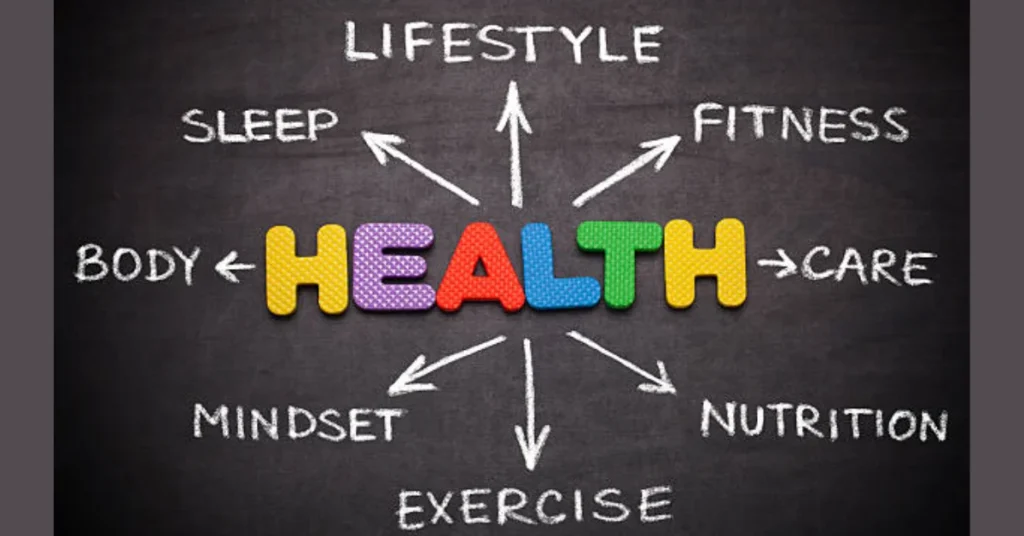For generations, the word health has been defined simply as the absence of disease. If a person wasn’t sick, they were considered healthy. But in today’s world — one that moves faster, stresses harder, and connects more digitally than ever — this narrow definition no longer fits. Health is not just about avoiding illness; it’s about thriving physically, mentally, emotionally, and socially. It’s a balance of all aspects of life that allows people to live fully and meaningfully.
Beyond the Physical Body
When most people think of health, they imagine exercise, nutrition, and medical checkups. And indeed, physical health forms the foundation of well-being. A strong heart, healthy weight, and balanced diet are essential to longevity. However, the modern approach to health recognizes that the body doesn’t exist in isolation — it responds to our thoughts, emotions, environment, and relationships.
For instance, stress, lack of sleep, or constant exposure to digital screens can disrupt hormones, weaken immunity, and even trigger chronic diseases. In contrast, consistent physical activity, mindful eating, and adequate rest create a natural harmony that supports both physical and mental health. The body, as it turns out, mirrors the mind.
Discover related ideas that spark curiosity and inspire your next big move.
Mental Health: The Silent Partner of Well-Being
In recent years, awareness about mental health has finally gained the attention it deserves. Anxiety, depression, and burnout are no longer seen as personal weaknesses but as health conditions that deserve care and understanding. The World Health Organization defines mental health as a state of well-being in which individuals can cope with normal stresses, work productively, and contribute to their communities.
Those who cannot remember the past are condemned to repeat it. No one can make you feel inferior without your consent. It’s no use going back to yesterday, because I was a different person then.
Maintaining good mental health involves more than managing disorders — it means nurturing emotional resilience, developing positive coping mechanisms, and creating balance. Activities like meditation, journaling, and spending time in nature can calm the nervous system, while open communication and social connection can reduce feelings of isolation. In essence, taking care of the mind is just as vital as taking care of the body.
The Power of Nutrition
“You are what you eat” may sound like a cliché, but it carries deep truth. The human body depends on nutrients to function optimally — not just for energy, but for cell repair, immunity, and even mood regulation. Diets rich in fruits, vegetables, whole grains, lean proteins, and healthy fats can prevent diseases such as diabetes, heart disease, and cancer.
In contrast, ultra-processed foods high in sugar and unhealthy fats contribute to inflammation, weight gain, and fatigue. Modern nutritionists emphasize mindful eating — paying attention to what, when, and how we eat. This means slowing down, savoring food, and listening to the body’s natural hunger cues. Eating isn’t just a biological act; it’s an opportunity to nourish, respect, and connect with one’s body.
Exercise: Movement as Medicine
Movement is one of the most powerful medicines available — and it’s free. Regular exercise strengthens muscles, improves cardiovascular health, boosts mood, and sharpens focus. Yet, many people still associate “exercise” with strict gym routines or weightlifting. In reality, movement can take any form: walking, dancing, cycling, yoga, or even gardening.
The key is consistency. Just 30 minutes of moderate activity most days of the week can dramatically reduce the risk of chronic diseases. Moreover, exercise triggers the release of endorphins — natural chemicals that elevate mood and reduce stress. The mind-body connection becomes most apparent here: when we move, we not only build strength, but we also build joy.
Social Health: The Importance of Connection
Humans are social creatures. A growing body of research shows that loneliness can be as harmful to health as smoking or obesity. Strong social ties — whether with family, friends, or communities — are crucial for emotional stability and long-term well-being.
Healthy relationships provide emotional support, increase self-esteem, and create a sense of belonging. In the digital age, however, many people confuse online interactions with real connection. While technology can bring people closer, it can also create isolation if not balanced with face-to-face contact. Genuine connection requires empathy, presence, and shared experiences — all of which nurture our emotional and social health.
Rest and Recovery
Health also thrives in stillness. In a society that glorifies busyness, rest is often seen as laziness, but recovery is essential for growth. Sleep, in particular, is one of the most underrated pillars of health. During deep sleep, the body repairs tissues, the brain consolidates memories, and hormones are balanced.
Chronic sleep deprivation, on the other hand, weakens immunity, affects mood, and increases the risk of heart disease. Beyond sleep, relaxation practices such as deep breathing, stretching, and spending quiet time away from screens can recharge the body and mind alike.
A Holistic Approach to Living Well
True health isn’t something we achieve once and then maintain effortlessly; it’s a lifelong journey that requires awareness and adaptation. A holistic approach means recognizing that everything is connected — the food we eat, the thoughts we think, the people we surround ourselves with, and the environments we live in.
Health is not perfection. It’s balance. It’s the ability to respond to challenges with strength and compassion, to care for ourselves and others, and to live in harmony with our surroundings. When we understand this, health becomes more than a personal goal — it becomes a way of life.
Keep discovering — explore more articles designed to expand your thinking.






